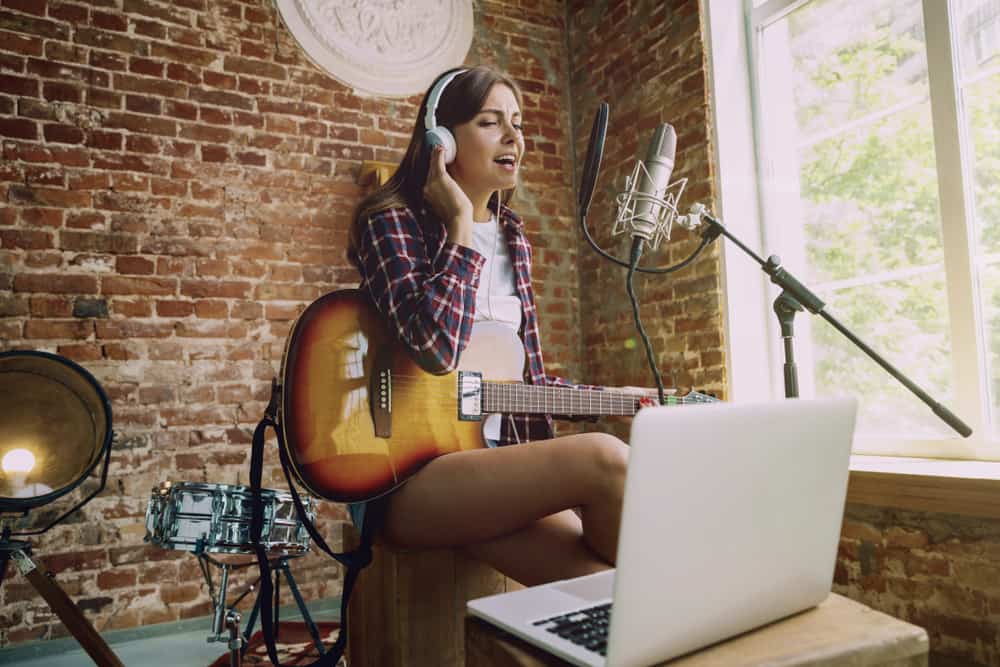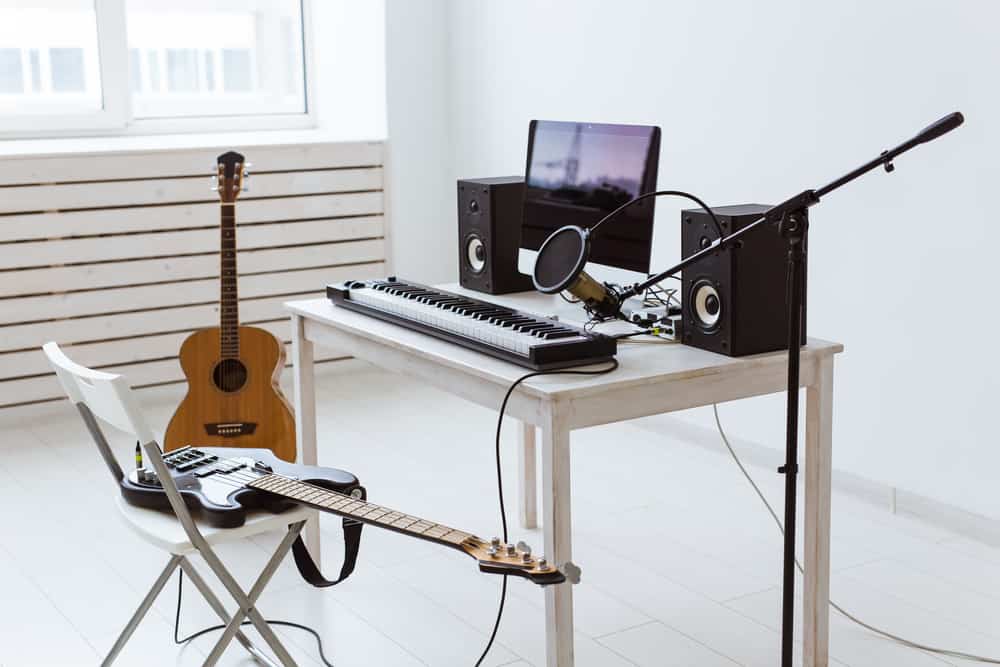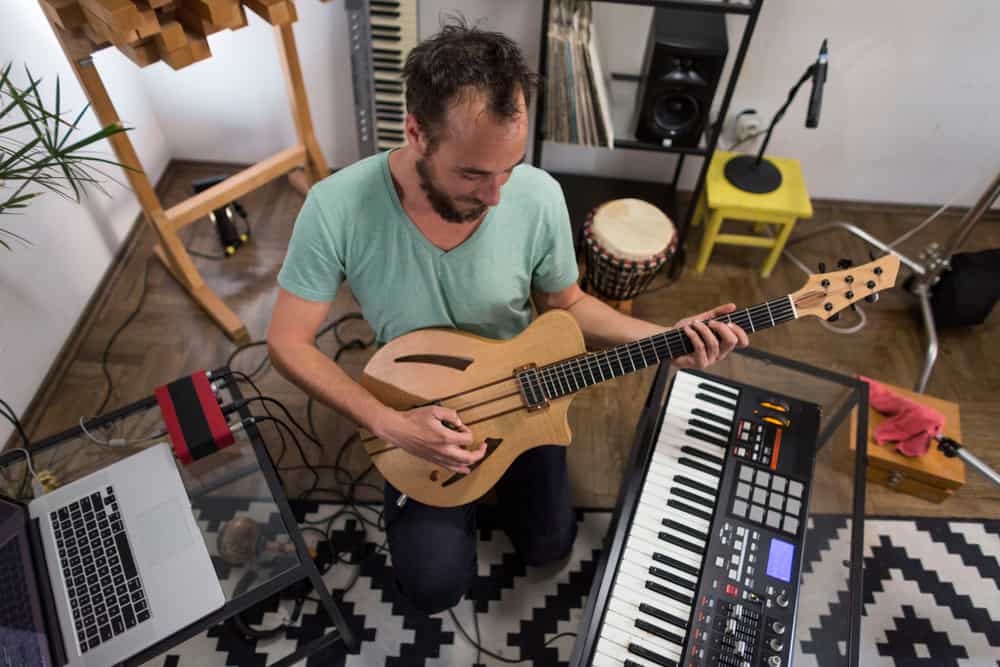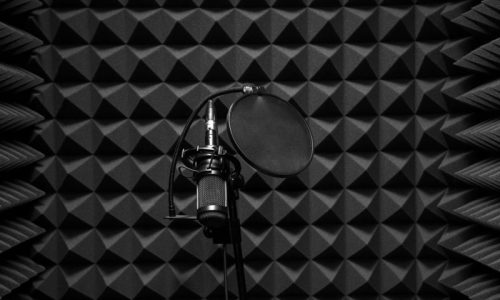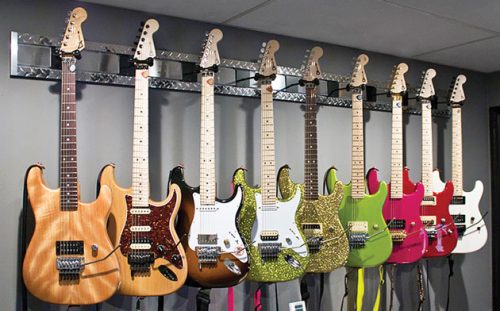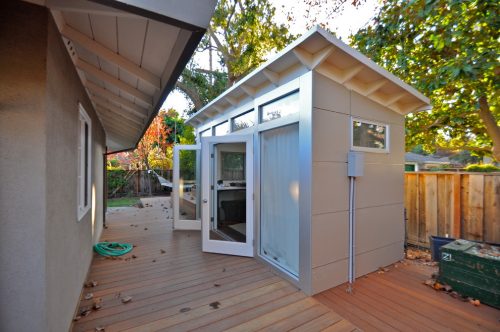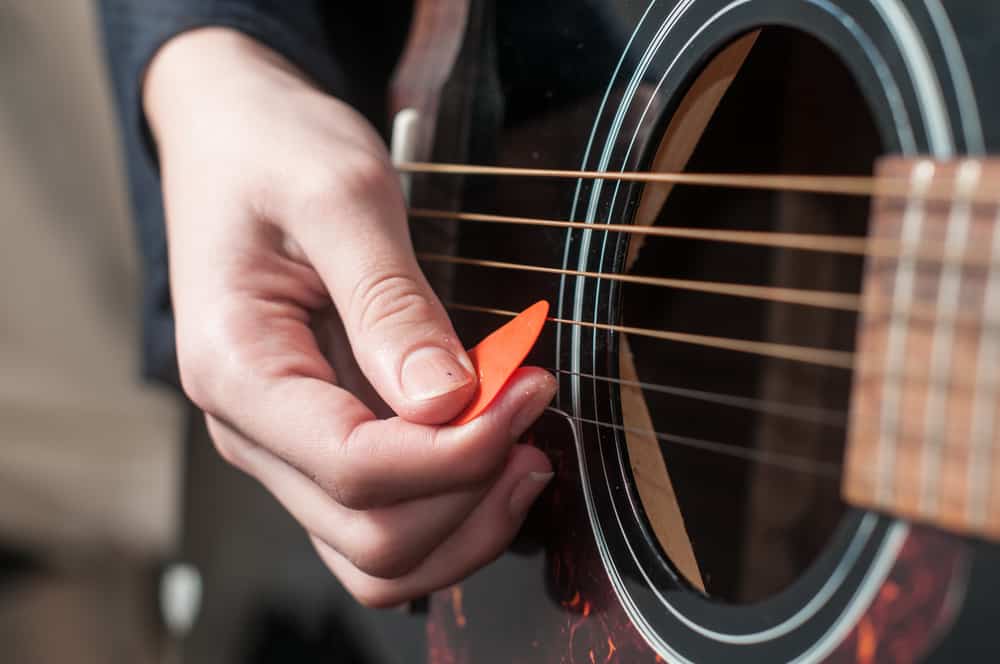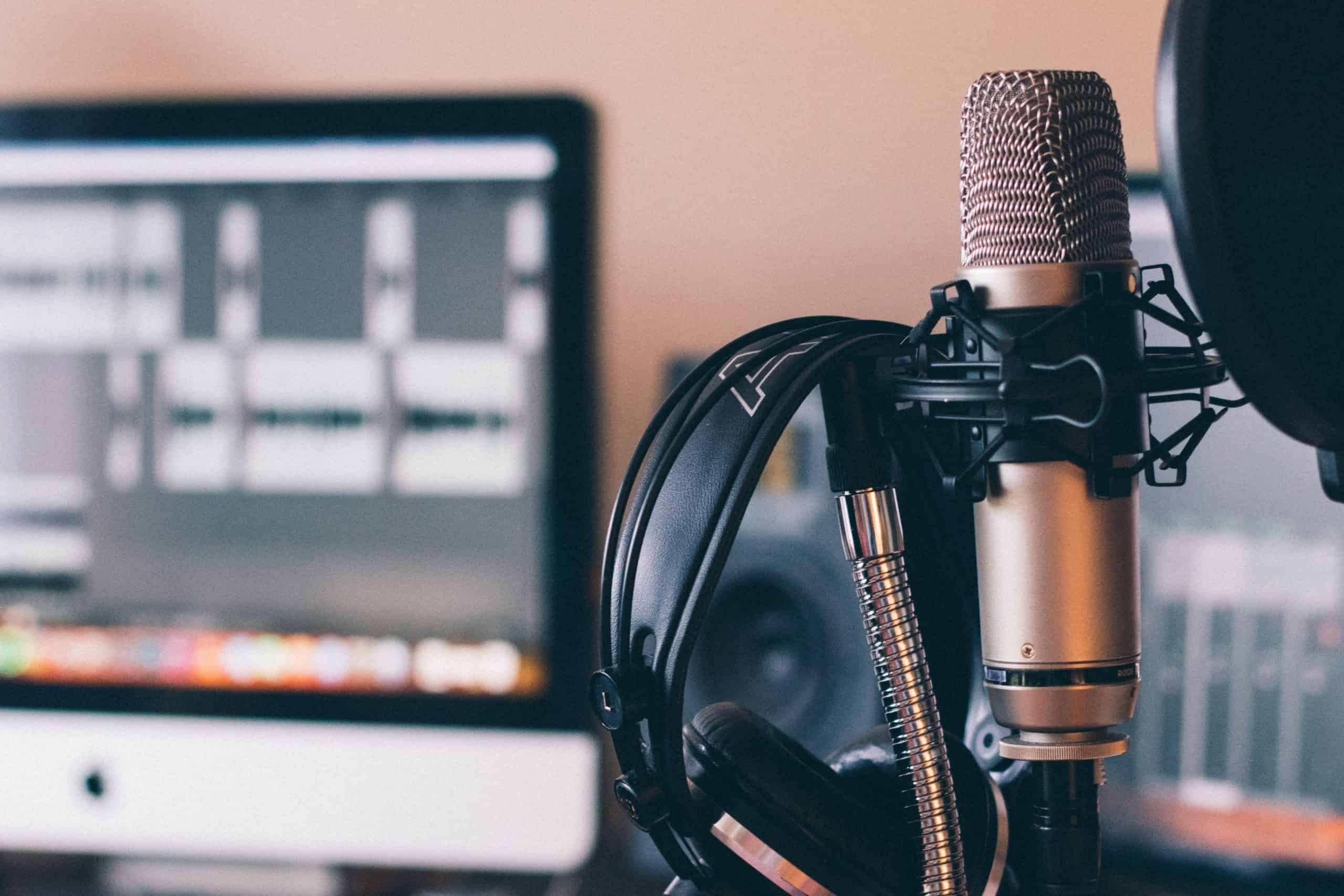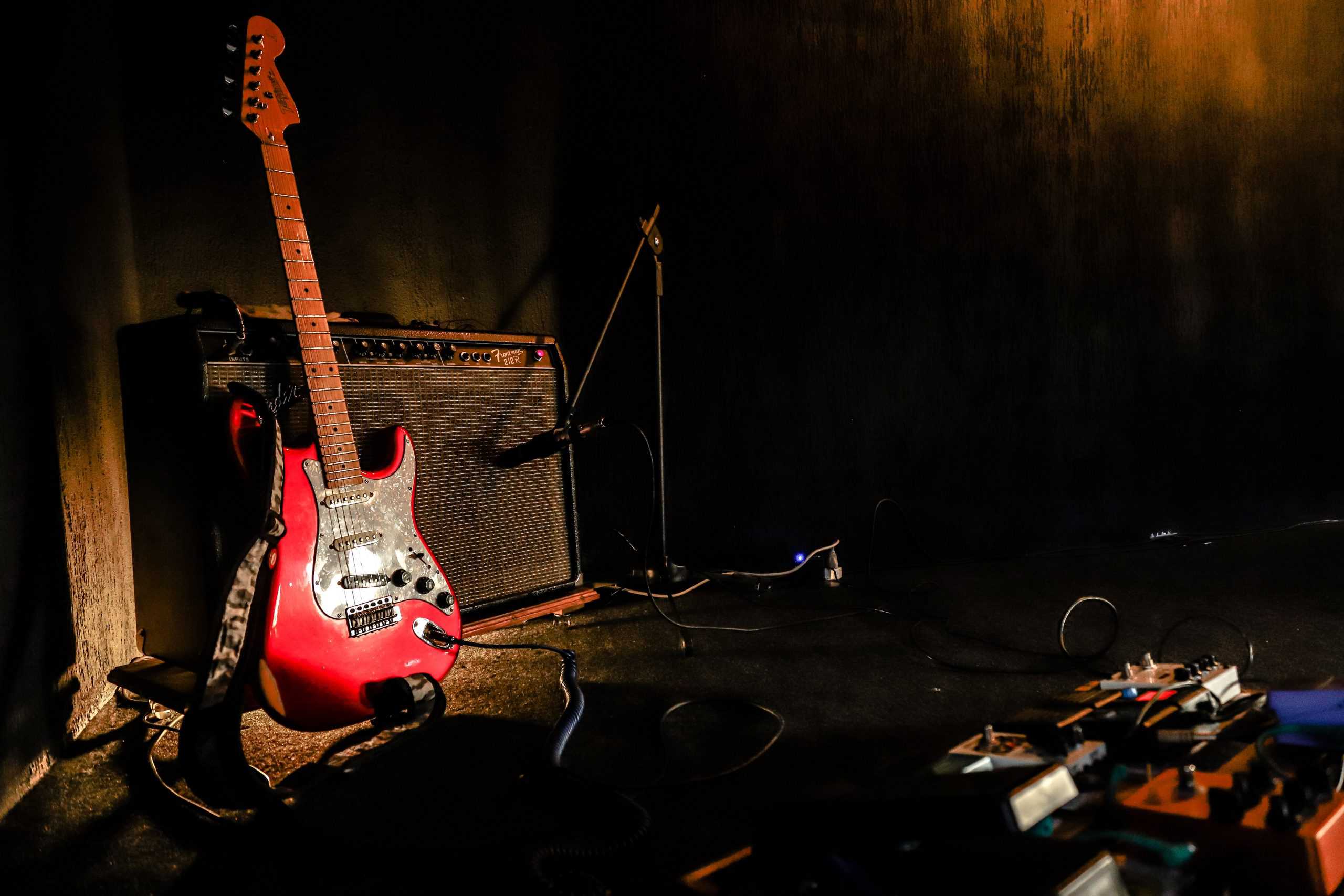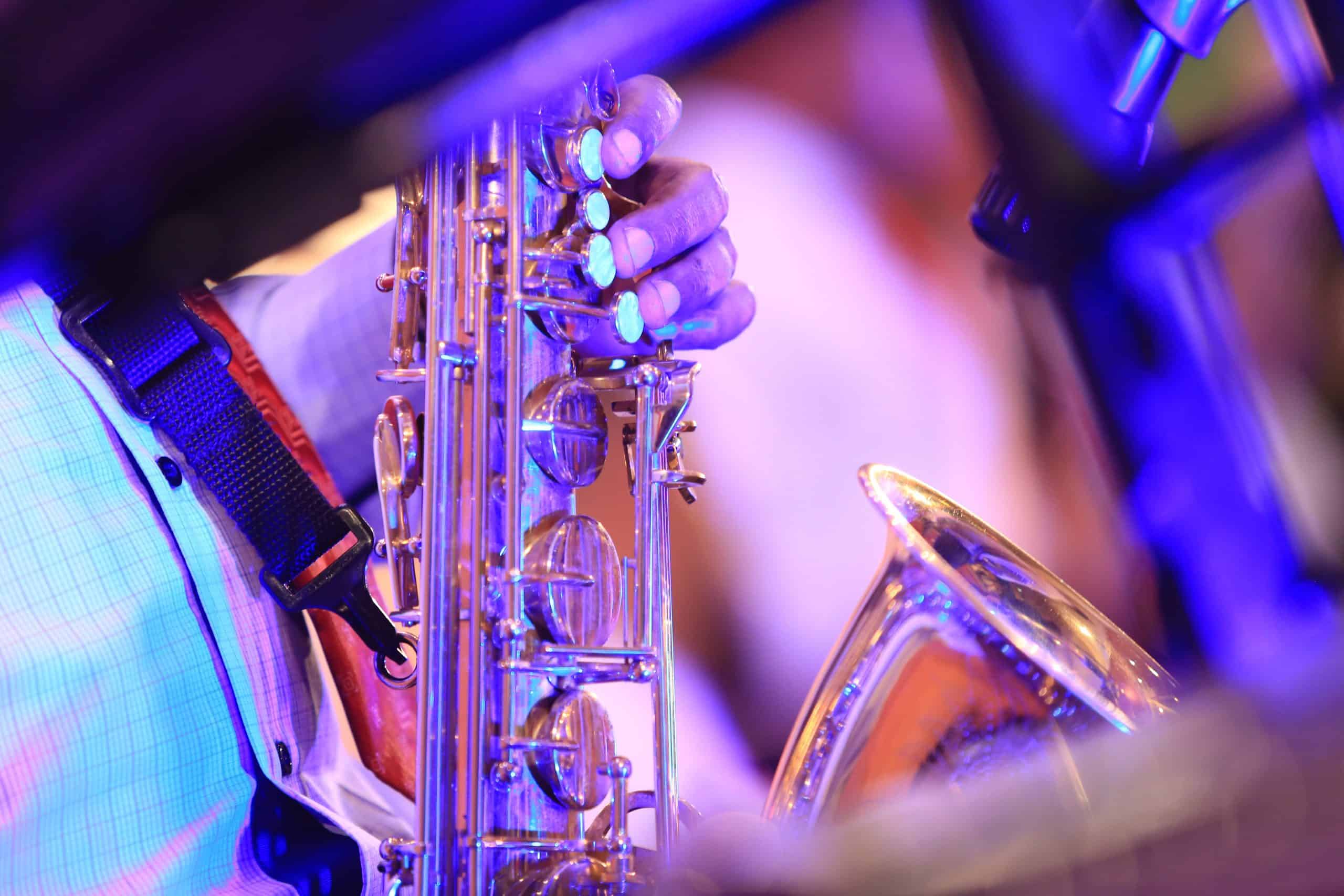Whether you practice music as a hobby or you want to form a band…
You’ll want a dedicated space where you can be free to jam out all you want.
So, what better place to start than in your own home?
Building a home music studio is fairly easy. Depending on the size of your space and the level of tone or sound quality you want, it can also be fairly affordable.
Here are the basic steps you need to know to start building your very own home music studio.
Page Contents:
Choosing Your Space
First thing’s first: you need to decide where to put all your gear. The amount of space you need should be dependent on how much equipment you plan to use.
If you’re prepping a space for a drumkit, or if you want to put together a band, then you’ll need a larger room to store your equipment in. You can set everything up in a garage for the classic “garage band” setup, but a basement can work just as well.
For musicians who produce their own music solo, you can set up your studio just about anywhere in your home. A medium-sized bedroom or spare room will be more than enough to accommodate all of your equipment.
Prepping the Room
Once you’ve settled on a location, it’s time to start prepping the studio. Sound bounces off of walls and other objects, which could affect the quality of your music if you aren’t careful.
Soundproofing your studio can be done with acoustic foam panels. These panels are used in soundproof rooms for a variety of purposes, and they can be easily placed in strategic locations throughout your studio.
You can either buy pre-cut panels, or you can order custom-made paneling to better fit your available studio space.
Buying Your Equipment
If this is your first time building a home studio, or if you’re just starting to get serious with music, you might need to go out and buy some equipment.
For the optimal home studio experience, you’ll need all of the following items:
- Instruments
- A computer
- An audio interface (this will connect all of your equipment together)
- Microphones (includes mic stands and pop filters)
- High-quality headphones
- Audio mixer
- Speakers
- Cables
All of these are vital components to producing the best sound quality you possibly can. Studio-quality equipment is more expensive than generic consumer-grade equipment, but it guarantees optimal sound and gives you greater control over your audio.
Start Making Space
You’ve picked a room for your studio. You made sure it’s adequately soundproofed. You have all of your equipment. Now it’s time to make space for everything.
Set aside space for a desk where your computer and other audio equipment will go. This will essentially be your “command central,” where you can adjust and edit the audio however you want.
Create guitar hangers to hang your guitars from, if you have any.
If you’re using a keyboard, place it in an easily accessible part of the studio. It’s recommended that you place it near your computer desk, so that way you can look at the audio waveforms in real-time.
Most importantly, make sure there’s enough space for you to walk around in. A studio shouldn’t be too cramped, as it could potentially be a fire hazard.
And that’s it!
Congratulations! You’ve officially built your own in-home music studio.
How Much Does it Cost to Build a Small Studio?
The cost of a music studio will vary depending on the size of your potential studio, and the amount of equipment you’ll need.
On the lower end of the spectrum, a small studio will only cost you around $300 to $400. This is assuming you don’t plan on buying a lot of equipment, or if your studio is more of a dedicated space where you can just practice your music in peace.
If you plan on buying actual instruments and audio equipment, it will obviously cost more. Depending on the quality of the equipment you buy, putting together a small music studio could cost at least $10,000.
Is a Studio Shed Worth It?
Studio sheds are seen as a viable alternative to a home studio, especially if there isn’t a lot of room in your house. But, like most things, studio sheds have both pros and cons. Consider all of these before you make a decision on whether or not to make a studio out of a shed.
Pro: Studio Sheds Keep Your Home Clear
With a home studio, you’re inevitably going to sacrifice space for your equipment. This can lead to a problem if you don’t have enough space for everything, and you’re left wondering what to move around or get rid of.
By having a studio shed, you have a dedicated area for all of your instruments and equipment to go. This also frees up the rest of your house for other purposes.
Con: Studio Sheds Are Still Expensive
All of the costs of building a studio are carried over if you build it in a shed. However, there is also the additional cost of building the shed structure.
On average, sheds can range anywhere from $3,000 to $6,000 if you buy them pre-built. If you hire someone to build it for you, then you have to factor in the cost of hiring the contractor, plus any other fees they might charge.
Want to try your hand at building the shed yourself? You still need to purchase all of the necessary materials, which can easily cost thousands of dollars.
Pro: Studio Sheds Are Remote
It can be hard to concentrate in a home studio. Even if you have a dedicated room all to yourself, you still have to share the rest of the house with anyone else living there.
And of course, others might think that your music-making is distracting…
Studio sheds allow for greater concentration because they are detached from the rest of the house. You can get away from everybody else and simply focus on making your music, without the worry of outside disruption.
Con: Zoning Laws
When you purchase a shed, you are susceptible to the local planning & zoning laws of your area. This means that there are limitations on what you can do with the shed, or on how large your future studio space can be.
In some areas, zoning laws are strict regarding electrical power being run to a shed. If you aren’t careful, you could potentially be hit with a zoning violation, which would result in a fine.
